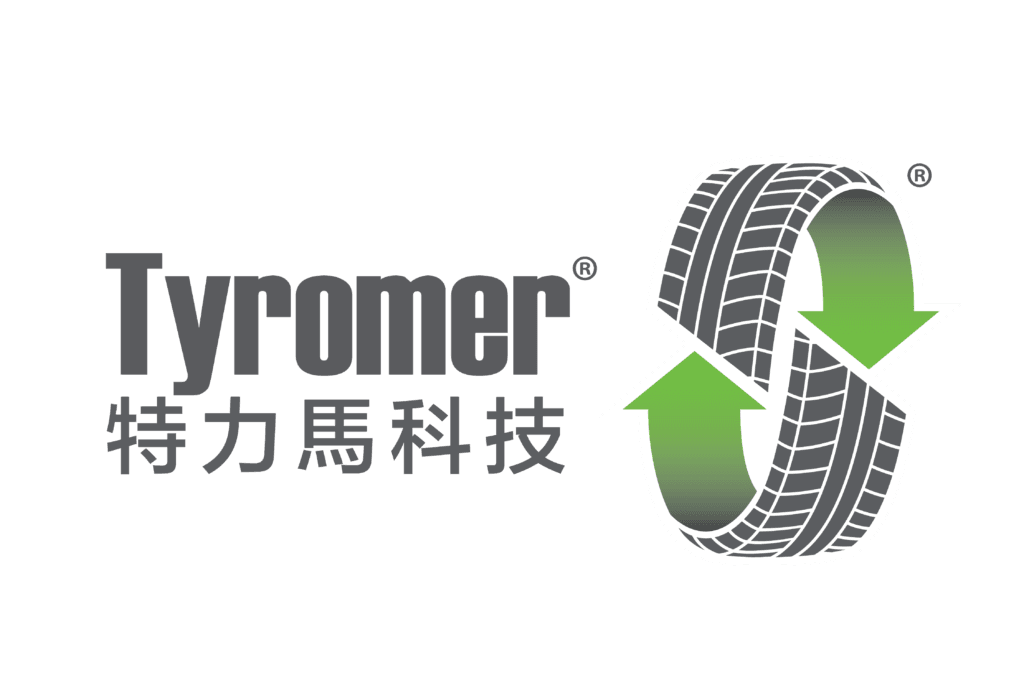Tyromer’s Tire Devulcanization Systems are Highly Recognized by TRIB
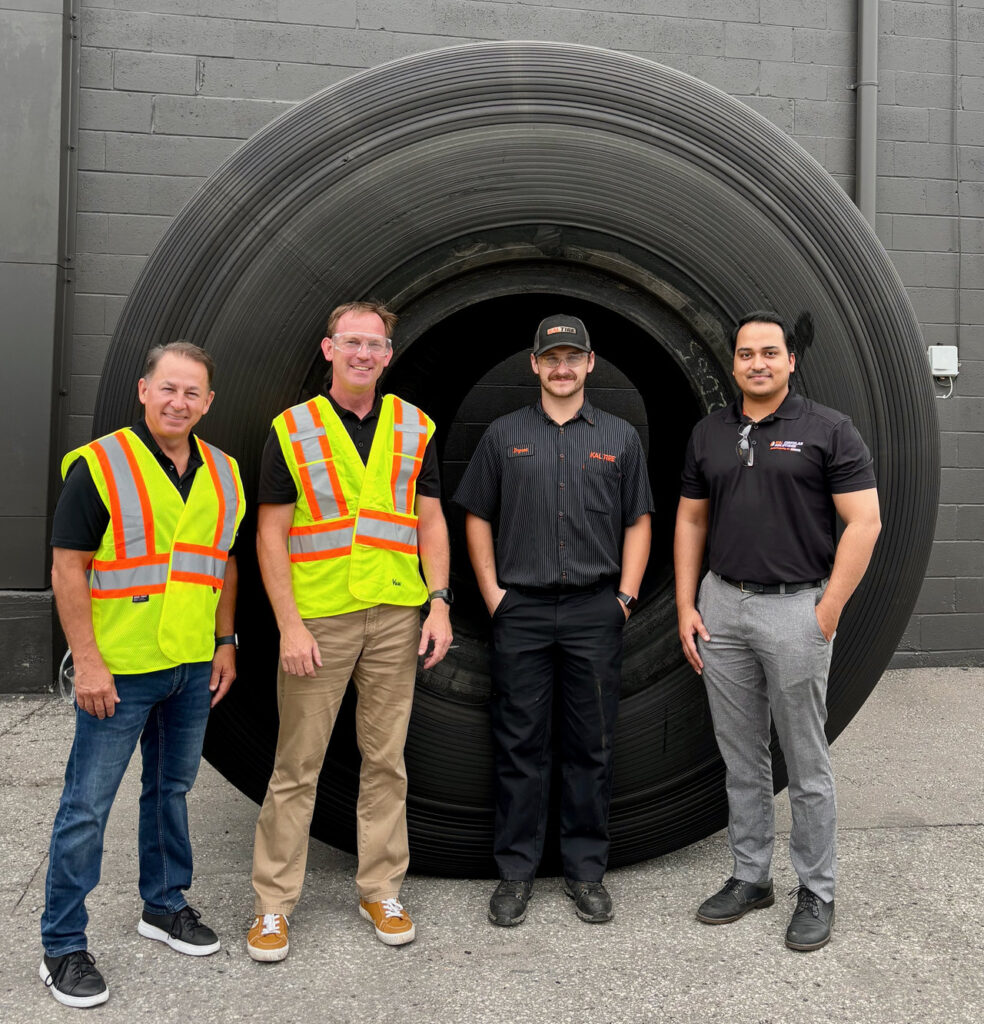
Tyromer Devulcanization Systems are Highly Recognized by TRIB Recently, a delegation from the Tire Retread & Repair Information Bureau (TRIB) visited the Ontario-based Oshawa facility of Kal Tire, a leading Canadian tire manufacturer, to gain in-depth insights into its advanced desulfurization system. Kal Tire has long been committed to developing high-quality tire products. With rising global environmental awareness, tire recycling has become a critical industry focus. To align with sustainability goals, Kal Tire adopted an innovative Tyromer desulfurization system, which processes waste tire rubber into tire-derived polymer (TDP), enabling tire reuse and reducing environmental pollution. Below is a translated excerpt from TRIB’s official website article about the visit: I recently had the chance to visit Kal Tire’s OTR Tire Retread & Repair facility and their devulcanization facility in Oshawa, Ontario. I was met there by Darryl Moore, Director, Business Development Remanufacturing and Sustainability Solutions, Jon Corey, Retread Facility Manager, and Paresh Kulkarni, Devulcanization Facility Manager. In addition to Kal Tire’s Bandag commercial truck retread facilities throughout Canada, Kal Tire also has two OTR retread and repair facilities in Canada; the one in Oshawa that I visited and one in western Canada in Kamloops, British Columbia, in addition to 4 other OTR repair facilities. The thirty team members at the Oshawa retread facility work two shifts to produce more than 2,000 OTR retreads per year and process a roughly equivalent number of repair-only tires. We walked through the retread process from start to finish and of course, began at the critical initial inspection phase. The experienced team members who work in this section carefully inspect every tire that comes into the facility to determine whether it can be repaired or retreaded. Depending on the size of the tires and the locations the tires are coming from, it can take up to three days to inspect 40 to 50 tires. A mistake at this stage of the process can lead to hours of lost productivity for the facility, especially if a tire starts going through the retread process and is later determined not to be a good candidate for retreading. It’s an important point to stress about retreading… only carefully inspected tires that pass quality control measures go into the retreading process. Quality in equals quality out. At this stage, Kal Tire also removes any previous patches installed so they can re-install the patches and ensure they meet Kal Tire’s specifications for repairs. From here, we move on to the buffing and regrooving stations where the expired tread is first peeled off in larger pieces and then the tire carcass is buffed to the appropriate texture for retreading. Again, depending on the size of the tire, the buffing process can take an average of 30 minutes, while regrooving tires can take up to 90 minutes. As we’ll see later, Kal Tire is very focused on sustainability, and they use a closed-loop tower collection system that captures all the peeled rubber and buffings to be recycled. Next, it’s on to skiving which can also be a productivity challenge given the amount of manual labor required to skive out damage to the tires to prepare them for repair. Three full-time team members work each shift and skive between 1 and 6 tires per day. This is just one other indicator of the amount of skilled labor that goes into each of these tires during the retread process. As we move on to the repair section, the well-trained and experienced team members carefully make repairs, install new patches, and fill skives in final preparation for the repairs either being cured and the tires returned to service or getting prepped to be built and put into molds/chambers for retreading. It’s important to note here that Kal Tire uses 25% reclaimed rubber in their compound formulations for their use in OTR retreading. This reclaimed rubber comes directly from the capture of buffings and other used rubber from Kal Tire’s retread facilities. Finally, the tires move on to the curing phase of the retread process. The curing chambers in Oshawa can handle tires up to 57 inches in diameter and can take up to six hours to cure. Now we move across the street from the retread plant to the devulcanization facility and on from rebuilding tires to reusing rubber buffings in the production of tread rubber. Becoming operational in January 2024, the devulcanization line is the most advanced fully-operable devulcanization facility in North America. Kal Tire’s partnership with Tyromer (who owns the Intellectual Property for the devulcanization process) has allowed them to recycle their retread buffings back into the tread rubber for their OTR retreads. Commercial truck tire buffings are collected from Kal Tire’s various Bandag retread facilities and delivered to the devulcanization facility in Oshawa. Non-contaminated rubber is critical to the devulcanization process and the buffings go through several cleaning and separation steps before moving on to devulcanization. First, the rubber buffings are fed through a magnetic drum that pulls out any metal contaminants and grinds the rubber from 4 to 10 mesh down to 14 to 30 mesh. The buffings are then run through a gravity separator and re-fed through the grinder as needed to get to the perfect mesh size. After this, the buffings are run through a de-stoning machine that separates any tiny rocks or gravel that have survived the grinding process. The buffings are then collected in 2,000-pound bags and transferred to the devulcanization and extruder equipment located in a separate building. Using carbon dioxide, heat, and pressure, the rubber is devulcanized and the various component outputs are collected, including the now-devulcanized rubber which is extruded, passed through a second rock cleaning process, water-cooled, run through a dryer drum, applied with protective film, and cut to the correct length. As a final quality check, the material is run through a metal detector one last time to detect any stray contaminants before being shipped to their rubber compounder, Air Boss. This devulcanized rubber then goes into the tread rubber manufacturing process for materials that Air Boss will ship
Material Handling Conveyors Go Green CN
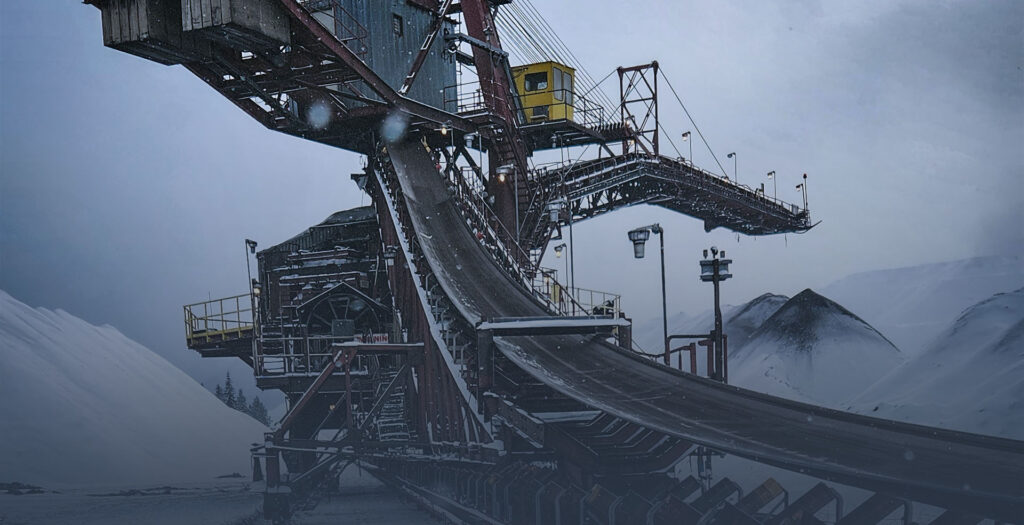
Material Handling Conveyors Go Green Waste mining tires are transformed into a new material for use in conveyor manufacturing. Giant mining tires and conveyor belts are made of high-performance rubber and, due to perceptions that recycled rubber cannot effectively replace virgin rubber in tangible amounts, these materials have, historically, presented a sustainability challenge within the tire and rubber industry. Waste off-the-road mining tires (wOTR) pose significant sustainability challenges due to the high costs and logistical complexities that come with them. In some cases, only 6 tires can be shipped on a single transport truck. These are highly engineered products, comprised of natural and synthetic rubber compounds, numerous reinforced protection ply layers, and steel belts. A single haul truck tire can weigh up to 5 metric tonnes (11,000 pounds), stand 15 feet tall, and contain enough steel to make a small car. However, tough as they are, like all tires, these tires wear out, and in Canada alone, thousands of them need to be replaced annually. With no national or international mining tire recycling programs or commercially viable recycling opportunities currently available, worn-out tires represent one of the largest sources of industrial waste generated by mining operations. While some companies are actively repurposing retired OTR tires for temporary uses like building retaining walls or civil engineering projects, around 80% of companies either stockpile or dispose of these tires in landfills. This has created an enduring challenge, OTR tires do not biodegrade due to their chemically inert constituent materials. Whether they are left on-site or placed in landfills, OTR tires are not going anywhere. The Teck team undertook a lot of research. They looked at vendors capable of downsizing a 5-ton, 15 ft high giant mining tire. They studied the technologies available to reclaim or regenerate the rubber. Technologies — devulcanization, waterjet, thermal conversion (pyrolysis), micronization, as well as other tier 2 and tier 3 options to recycle giant mining tires. These were researched and then ranked in terms of which options were the most environmentally friendly — zero waste and discharge, energy used to recycle, GHG friendly. Ultimately devulcanization and waterjet technologies were two the team chose to pursue. It was important to find the most environmentally friendly and sustainable way to transport the tires. This was accomplished by implementing backhauls or trucks that were going back empty and by using rail to transport materials. This accomplished, the team also set out to upcycle the rubber crumb so that it was not merely being used as landscape mulch or for making rubber mats. Their objective was to displace virgin rubber being imported and ultimately this rubber crumb was reclaimed using devulcanization and partially replaced virgin materials. The goal was to develop a technology that would reclaim the waste into a quality rubber which end users would buy, compound and permanently adopt and, using the Tyromer technology to develop tire-derived polymer (TDP), and remarkably, they did just that. Collaborating with strategic partners, Teck worked with Liberty Tire to mechanically separate OTR tires, recycle steel components, and provide the residual crumb rubber. Teck then upcycled this rubber crumb using Tyromer’s devulcanization technology to bring the spent crumb rubber back to life. Fenner Dunlop then integrated the team’s TDP into new conveyor belts, after compounding and rigorous testing phases. These belts were put to work and monitored at one of Teck’s mining operations in BC, but getting to that stage was no mean feat. Convincing both management and maintenance personnel required persistence and technical guarantees from the manufacturer because a lot is riding on these tires. After all, a premature failure causing downtime at Canada’s largest open-pit copper mine would be costly, and impact adoption and any future pilots. After the initial pilot, the initiative expanded with belts being tested at multiple Teck sites and, depending on the application, monitored for abrasion resistance and performance. The success of these initial efforts provided confidence to develop a new fire-retardant compound to expand the product line. This required CSA certifications from a third party, and the end result, after stringent testing, was the manufacture of a 3,368 ft conveyor belt weighing 63,318 lbs, installed at one of Teck’s mining operations. The success of their CSA-C fire-retardant belt has encouraged a third-party mining company to purchase and install a conveyor belt at one of their operations in Canada. Teck’s innovative but careful approach to the task they set themselves is what enabled them to work collaboratively with industry giants like Michelin, Fenner Dunlop and Continental, shifting perceptions within the conservative tire and rubber sector. Proving that regenerated rubber can indeed replace virgin rubber in substantial quantities is a game changer, reducing the environmental footprint of mining operations and promoting circular economy principles in industrial manufacturing. 54 inch wide x 3,368 ft fire resistant conveyor belt installed In addition to achieving sustainability objectives and contributing to the circular economy, Teck’s innovative pilot projects have set new industry standards and proven the concept of transforming waste into valuable resources. These efforts help prevent deforestation associated with rubber cultivation by providing a sustainable domestic alternative to imported rubber, contributing significantly to Canada’s manufacturing sector’s reduced reliance on foreign materials. Sometimes “What goes around comes around” is a dire warning, but coming from Teck Resources Limited, it’s a very hopeful start. Article according to: CLEAN 50
Tyromer Selected for the AWS Clean Energy Accelerator 4.0

Tyromer Selected for the AWS Clean Energy Accelerator 4.0 Amazon Worldwide Operations Sustainability. The enterprise acceleration program is set to support decarbonization at scale through client venturing August 14, 2024 — Amazon announced today that Tyromer has been selected as one of the 21 startups out of over 800 candidates from 74 countries that will participate in the Amazon Web Services (AWS) Clean Energy Accelerator 4.0 I Generative AI edition in the circular economy focus area, a high-pace, non-equity dilutive accelerator designed to support enterprise customers decarbonize at scale, through co-innovation with emerging clean energy and climate tech solutions by mature startups. The program is focused on helping accelerate net zero pathways and the deployment of circular economy solutions to meet the world’s growing energy needs and to preserve depleting resources. “We’re pleased to welcome Tyromer into the Clean Energy Accelerator 4.0 as we work together to accelerate energy transitions through generative AI and grid modernization,” said Howard Gefen, General Manager of Energy and Utilities, AWS. “With focus areas spanning from sustainability to clean energy, to alternative fuels, we’re excited for this collaboration in helping us reach our net zero goal.” “We are excited to join the AWS Clean Energy Accelerator and work towards overcoming clean energy and decarbonization challenges,” said Jon Visaisouk, COO. “Through this program we can help define and shape the future of clean energy, climate tech and circular economy innovations.” The circular economy is one of the focus areas of the AWS Clean Energy Accelerator 4.0. Amazon Operations Sustainability has joined the program as a piloting partner, looking for breakthrough solutions in low carbon building solutions, circular economy, sustainable fleet and mobility, and low carbon fuel technologies. Tyromer is excited to collaborate with Amazon Operations Sustainability to pilot tires containing TDP (Tire-Derived Polymer), a devulcanized tire rubber made from end-of-life tires, to introduce the Tyromer Tire-to-Tire vision for sustainable mobility. The AWS Clean Energy Accelerator 4.0, which was announced at COP28 and kicked off in March 2024, has selected its cohorts. Throughout the year it will bring the participants and piloting partners into immersion sprints and workshops to dive deep into piloting opportunities in addition to events to showcase clean energy technology innovations, pilot progress and new use case developments to an audience of leaders in the energy space, industry experts, private and public sector and investors. Learn more about the AWS Clean Energy Accelerator at: www.aws.amazon.com/energy/clean-energy-accelerator
Tyromer recognized by U.S. Government, Selected for Grant Programs

Greater Akron Sustainable Polymers Tech Hub Proposes Broad Action to Anchor the Future of Sustainable Polymers Technology Akron, OH – Earlier today, partners of the Polymer Industry Cluster, housed at the Greater Akron Chamber and recent designee as the federal Sustainable Polymers Tech Hub, submitted a proposal to receive funding from U.S. Department of Commerce Economic Development Administration’s (EDA) Regional Technology and Innovation Hubs Program (Tech Hubs). In this application, the Polymer Industry Cluster proposes to use EDA funds to implement eight Sustainable Polymers Tech Hub projects that collectively: Enhance a sustainable governance model with focus on partnership growth, Open Innovation, Evaluation, and Risk Mitigation; Reinvigorate the polymer startup ecosystem and increase investment resources for innovators; Add new workforce capacity in Sustainability and Life Cycle Assessment; and Invest in technology that enhances polymer performance, while reducing environmental impacts. The proposal requests a total of $70 million for this work, matched by over $11 million in public and private investment. The projects will be implemented over a five-year period, with the goal to create or retain over 6,300 jobs; catalyze $1.8 billion in direct private investment; and achieve an annual CO2 reduction of 3.9 million tons (equivalent to taking nearly 1 million cars off the road). Synthetic polymers, such as rubber, plastics, and adhesives, are strategic materials that have helped address some of society’s most important challenges. However, conventional polymers, derived from fossil fuels, produce greenhouse gas emissions, pollution, and non-biodegradable scrap that have major environmental consequences. The award announcements are expected in the summer of 2024, with funded projects expected to begin in October. In the interim, the Polymer Industry Cluster will continue its work convening strategy groups focused on consortium governance, communications, and impact evaluation, and strengthening the fabric of collaboration for the benefit of research, innovation and investment in the industry. While the submission of this proposal is one more step in the work of the Polymer Industry Cluster to double down on our region’s roots in the polymer industry and leverage our industry assets to create jobs, investment, innovation and opportunity. About the Proposal The vision of this proposal centers around the goal of accelerating the commercialization of sustainable polymers while equitably benefiting the people and businesses of Greater Akron. Drawn from a larger pipeline of technology maturation projects, this proposal brings forward five projects with groundbreaking technological potential and further invests in governance, workforce, and startup-focused assets to accelerate impact beyond Tech Hubs. The result is an initiative that directly integrates exciting polymer innovations into the value chains of global corporate end-users with line of sight to worldwide deployment. Each of the eight projects are being led by a Polymer Industry Cluster partner, each making a direct funding request to EDA under the Sustainable Polymers Tech Hub umbrella. Partners leading component projects include Bioverde Tech LLC, Bounce Innovation Hub, Flexsys, Full Circle Technologies / Tyromer (co-leads), Huntsman Corporation, The Goodyear Tire & Rubber Company, The Greater Akron Chamber, and The University of Akron. The eight projects were selected after rigorous exploration and deliberation of the partners and stakeholders of the Polymer Industry Cluster. Support and engagement for this application was garnered from an unprecedented 77 public and private partners, including corporations, institutions of higher ed, government, economic and workforce development, labor, and community organizations. Through this work, the Sustainable Polymers Tech Hub aims to enhance Greater Akron’s global competitiveness and increase climate and environmental sustainability in the manufacturing of rubber and plastics locally and across the globe. The proposal is born from a rich history and density of polymer companies in Akron, Ohio, making it a ripe opportunity for the region and the country. Anchoring a region with 1,200 companies and 42,000 workers in the polymer sector, Greater Akron has the largest concentration of polymer plants, machines, and materials in North America. Renowned for its technical expertise and innovation, our region is positioned to be America’s best location to catalyze sustainable polymer technology for global impact. The submission of this proposal and the preceding designation as the Sustainable Polymers Tech Hub, create unparalleled opportunities for Greater Akron and Northeast Ohio, as a whole. The opportunity to apply for investment opportunities like this one will catalyze new industry, support the growth of innovation, increase the growth and attraction of businesses in this industry, and drive economic growth in our region across all sectors. Beyond this, an intentional focus on inclusive economic growth is illustrated in this proposal, thus reinforcing the commitment to ensuring all of Greater Akron’s residents experience the opportunities that can be created during this next phase of our region’s history. We are greatly encouraged by the broad bipartisan support this proposal has received from Ohio’s Congressional Delegation, the DeWine Administration, Ohio Legislature, and local government leaders. The partnership and backing of our elected officials helped us get to where we are, and we look forward to continuing to work with them on securing what will be a transformational investment for one of Ohio’s most critically important industries. We have also received wide support from a broad network of economic development partners and organizations in Northeast Ohio and beyond including significant investment committed from JobsOhio to match more than $4 million committed by a broad range of private sector companies, philanthropic organizations, Summit County and the City of Akron. About the Greater Akron Chamber The Greater Akron Chamber is a business membership and economic development organization serving Summit, Medina, and Portage counties. The Greater Akron Chamber drives economic growth and prosperity for the region by supporting the success of the business community and acting as a convener of stakeholders on key issues facing Greater Akron. About the Polymer Industry Cluster The Polymer Industry Cluster Initiative was launched in 2021 to conduct a deeper examination of the region’s polymer industry and develop a framework to leverage its full potential. Powered by the Greater Akron Chamber, the Polymer Industry Cluster works to elevate Northeast Ohio’s polymer industry into a truly dynamic enterprise that is better positioned
TTA Achieved Dream of “Tire Rubber Circular Economy Globalization” through RTO with TRV
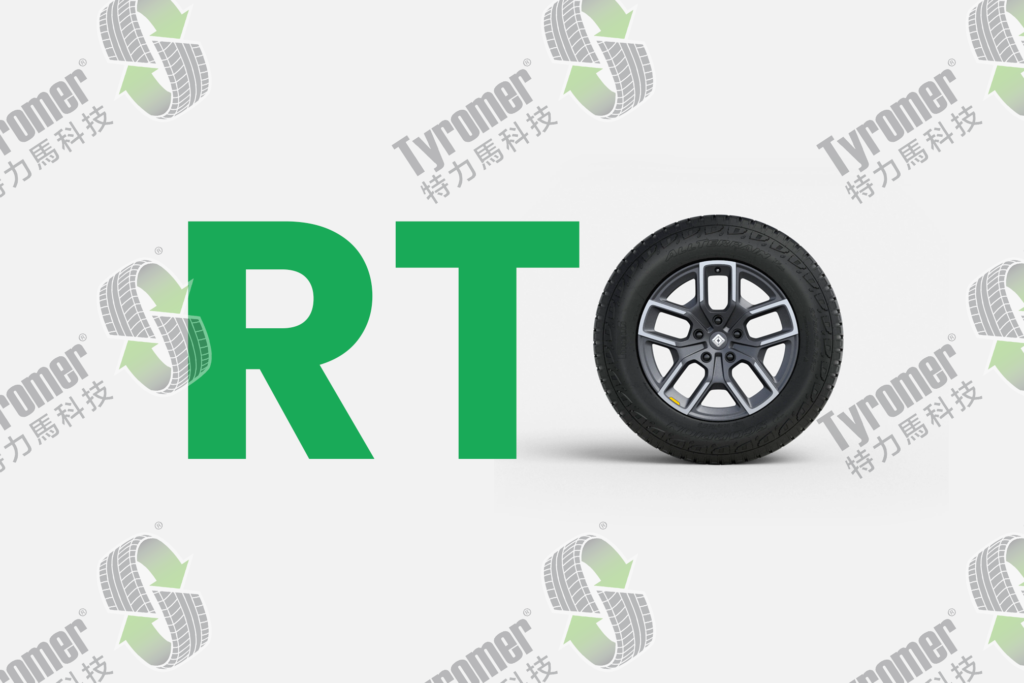
TTA ACHIEVED DREAM OF “TIRE RUBBER CIRCULAR ECONOMY Globalization” THROUGH RTO WITH TRV On August 4, 2023, Tri-River Venture Corporation (TRV) formally announced its business combination with Tyromer Technology Asia Limited (“TTA”) on the SEDAR (the financial statement filing system for Canadian public companies) platform. The proposed transaction will constitute a reverse takeover of TRV by TTA. TTA will ultimately realize its dream of “Tire Rubber Circular Economy Globalization”. The document highlights the following points: The valuation of TTA has been assessed as $17 million. The value of TTA is subject to number of new shares issued before the Closing Date. TTA is to raise $1.5 million through private placement. The parties will exchange shares at a price of $1 per share. After the transaction been completed , TTA will exchange all it shares to TRV shares holding 94.36%. Upon receiving board or regulatory approvals, TRV’s name will be changed to Tyromer Technology Inc. click the image to check the pdf file The original can be found on www.sedar.com, click here to check
China Rubber Industry visits Tyromer

China Rubber Industry visits Tyromer The US and Canada delegation of China Rubber Industry Association, accompanied by UIA Capital, visited the University of Waterloo on April 25th, and inspected the production line of “Tyromer” in “Kitchener”, and deeply Find out about the revolutionary solution that “Tyromer” technology provides for the disposal of scrap tires worldwide. Sam Visaisouk, CEO, Tyromer Inc., is pleased to announce that Tyromer Inc. hosted a delegation from the China Rubber Industry (CRIA) at the Tyromer Waterloo production facility in Kitchener. CRIA is a strong supporter of the Tyromer non-chemical solvent rubber devulcanization technology because it announced self-disciplinary standards for its members to “eliminate high-polluting processes and the use of hazardous chemicals such as coal tar” in May 2015.
Tyromer chosen as Top 100 private companies in North American by Red Herring

Tyromer chosen as Top 100 private companies in North American by Red Herring On June 14, 2017, Tyromer Inc. was named a winner of the 2017 Red Herring Top 100 North America event in Los Angeles, California, being recognized as one of the continent’s most exciting and innovative private technology companies. Sam Visaisouk, CEO, Tyromer Inc. thanks Red Herring and its judges for selecting the company a Top 100. Among the selection criteria were: social contribution, disruptiveness of the solution in its respective markets, market size, market maturity, growth rate, branding, CEO/Team quality, experience and track record. Globally over one billion scrap tires are generated this year, and more next year. Not much scrap tire rubber is reused in tire manufacturing even though the tire industry consumes more than 50% of the global rubber supply. Tyromer provides a socially responsible and environmentally sustainable solution to the global scrap tire problem using its patented supercritical carbon dioxide extrusion technology to devulcanize scrap tire rubber to produce TDP (Tire-Derived Polymer) for reuse in tire manufacturing. It is now possible to implement a circular economy in the tire industry.
Tyromer Wins 2018 Edison Awards Gold Medal

Tyromer Wins the 2018 Edison Awards Gold Medal in the Energy & Sustainability – Resource Re-use Category. New York City, NY – April 11, 2018 – From the 2018 Edison Awards: “We are proud to announce the Winners for the 2018 Edison Awards™. These Gold, Silver and Bronze Winners were chosen as the “best of the best” by the world’s top senior business executives, academics, and innovation professionals. Being recognized with an Edison Award™ is one of the highest accolades a company can receive in the name of innovation and business success. The Edison Awards honor excellence in new product and service development, marketing, human-centered design and innovation. We congratulate all of our winners for their accomplishment! Successful innovation is a team effort. It is people working together to create game changing marketplace success and value. This is what the Edison Awards has celebrated for over 30 years.” Tyromer wishes to thank the “Team” – all those who have collaborated, assisted, advised and contributed to creating its game changing approach to manage the global scrap tire problem and to bring sustainability to the tire industry. About Tyromer: Tyromer Inc. uses a supercritical carbon dioxide assisted reactive extrusion technology invented by Professor Costas Tzoganakis of the University of Waterloo to provide a non-chemical industrial process to convert scrap tire rubber into TDP (Tire-Derived Polymer) for reuse in tires.
Canadian startup turns old tires into new tires in the Netherlands
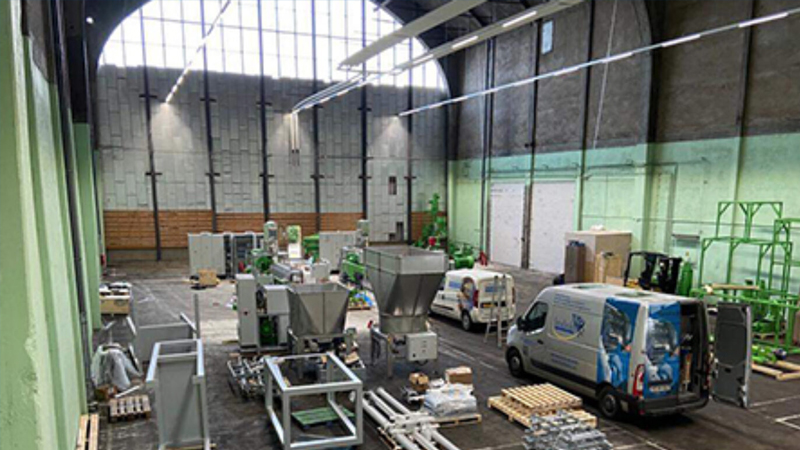
Canadian startup turns old tires into new tires in the Netherlands Canada-based Tyromer is building a pilot factory in Arnhem to bring its circular rubber products to the European market. Specializing in the devulcanization of rubber from scrap tires, Tyromer will fine-tune and exhibit its recycling technology at its new Dutch facility in order to sell the process to third parties. The company is one of the first in the Netherlands to give this hard-to-process residual product a high-quality new life, making it a valuable addition to the Dutch circular economy. Located at Kleefse Waard Industrial Park (IPKW) in Arnhem, the factory is currently being set up. “We expect to be able to start early in the summer [of 2021],” said Jos van Son, managing director of Tyromer Europe. Tyromer will employ approximately 12 people in Arnhem. “Tyromer has a unique solution to a major problem: mountains of car tire rubber that cannot be reused. Companies such as Tyromer, which have solutions for societal challenges with smart technologies, are a welcome addition to the East Netherlands ecosystem. The fact that Tyromer is establishing itself at IPKW, where many companies are involved with energy and circularity issues, is good news for the activity in our region,” added René Brama, investment manager of Tech at Oost NL. A sustainable product of Mother Nature Tyromer is a perfect fit for the Netherlands’ culture of sustainability. Founded at the University of Waterloo, the startup can create new tires from old ones – turning rubber into a circular product. As a result, the production process requires fewer natural rubbers and fossil fuels. It also saves an additional 94% of energy compared to making “virgin” rubber. In addition, this method reduces CO2 emissions by removing the need to incinerate or combust old rubber. Finally, Tyromer’s process occurs without chemicals or residual waste. “A great deal of ‘waste’ rubber is a product of Mother Nature. It is a durable and strong material. That must not be destroyed,” said van Son. “Tyromer, led by Canadian professor Costas Tzoganakis of the University of Waterloo, invented a way to make new rubber from used car tires (and any other rubbers). As the inventor of the process, Tyromer now sells licenses to compounders, who can then use them themselves. The more companies recycle rubber, the greater the environmental benefit.” Up until recently, recycling rubber was a puzzle for scientists. “Making rubber, also called vulcanization, can be compared to boiling an egg. Once cooked, it is very firm, and you can never reduce it to a raw, liquid egg. With our formula, that is now finally possible with rubber,” Van Son explained. International collaboration gives traction to circular economy At its factory in Arnhem, Tyromer can now convert three sources of rubber into new rubber: natural rubber and synthetic rubber can be obtained from car tires, and industrial rubber can be extracted from, among other things, seals. The company will collaborate on R&D with two Dutch universities to innovate new ways of recycling various rubber sources, thus advancing the Netherlands’ circular ecosystem. “There is still a way of development to be able to recycle other types of rubber in the future and thus save them from the waste mountain. We are going to collaborate with the University of Twente and Windesheim University of Applied Sciences, which have a reputation for polymers and rubbers in particular,” said van Son. Invest in Holland Network helps Tyromer’s Dutch branch come to life Tyromer worked closely with the Invest in Holland Network to find a location in the Netherlands. In addition, because of the project’s contribution to the circular economy and excellent reduction of CO2, Tyromer applied for and was awarded with a Demonstration Energy Innovation (DEI+) subsidy from the Dutch government. “Oost NL brought us into contact with municipalities where we could possibly settle and helped us find the location for the factory. We also received help from Oost NL and the Netherlands Foreign Investment Agency (NFIA) in realizing a Dutch office,” said van Son. Source: Oost NL (Dutch only)
REVYRE has partnered with Tyromer to develop its sustainable process for earthmover tires.
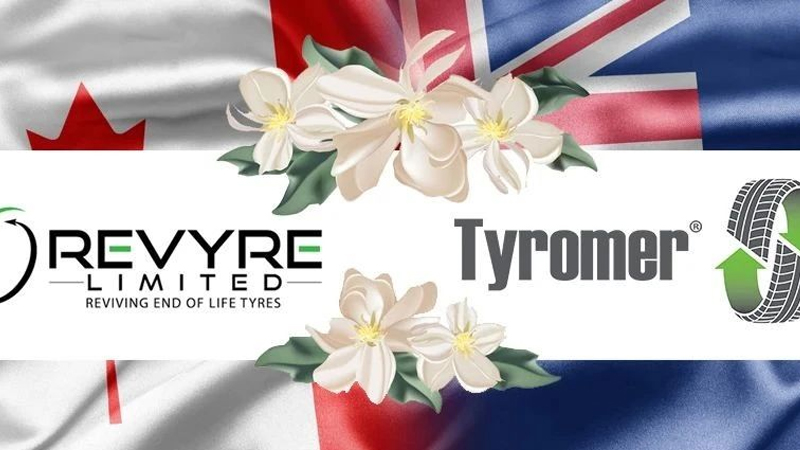
REVYRE HAS PARTNERED WITH TYROMER TO DEVELOP ITS SUSTAINABLE PROCESS FOR EARTHMOVER TIRES. REVYRE has developed a unique and highly efficient way of recycling end-of-life tires while minimizing any environmental impact. When it comes to tires, recycling and disposal have long been a challenging process to perform cost-effectively, efficiently and sustainably. With the current focus on environmentally friendly practices across the globe as it relates to disposal and recycling, the tire industry has also been making significant strides in this field. Recently, Autosphere learned about some new developments on the other side of the world in Australia and New Zealand. In 2020 InfraCo and Energy Estate announced REVYRE—a joint venture partnership designed to address the issue of end-of-life tires in this market. What’s really intriguing is that the REVYRE solution re-purposes a full 100% of tire constituents by a circular process that generates virtually zero emissions and no toxic chemicals or by-products. This technology has been designed to disintegrate most types of tires and recover the rubber compound and scrap materials which can then be re-used to make new tires and other black rubber-sourced products. While the emphasis is currently on the Australia and New Zealand market, the REVYRE solution does have a Canadian connection, as we found out when speaking to CEO Shaun Zukor. REVYRE have formed an alliance and partnership with Tyromer in Canada and RubberJet in Italy to bring the high-water pressure disintegration and devulcanization technologies. together under one roof. We are already opening the first facility in Australia and This will be one of our first sites and then simultaneously that will lead to our second Australian facility in the New South Wales special activation precinct in the Parkes district, and then our third site, which will be one of five locations in New Zealand.
